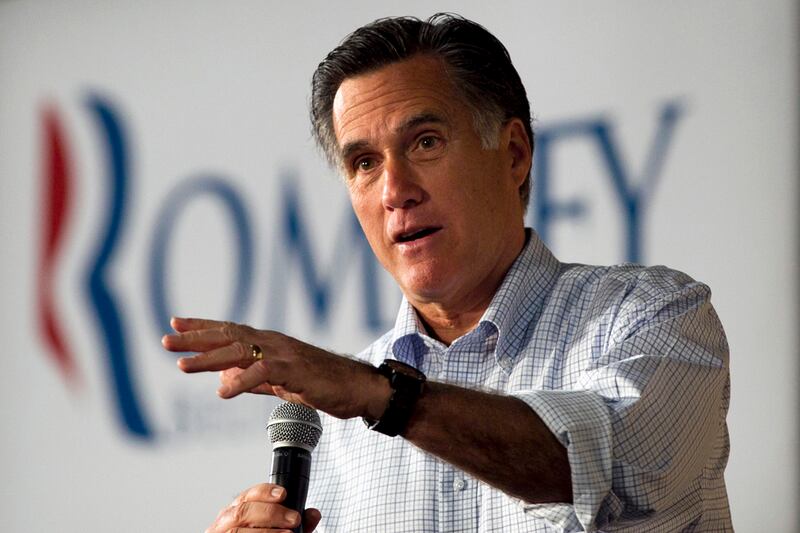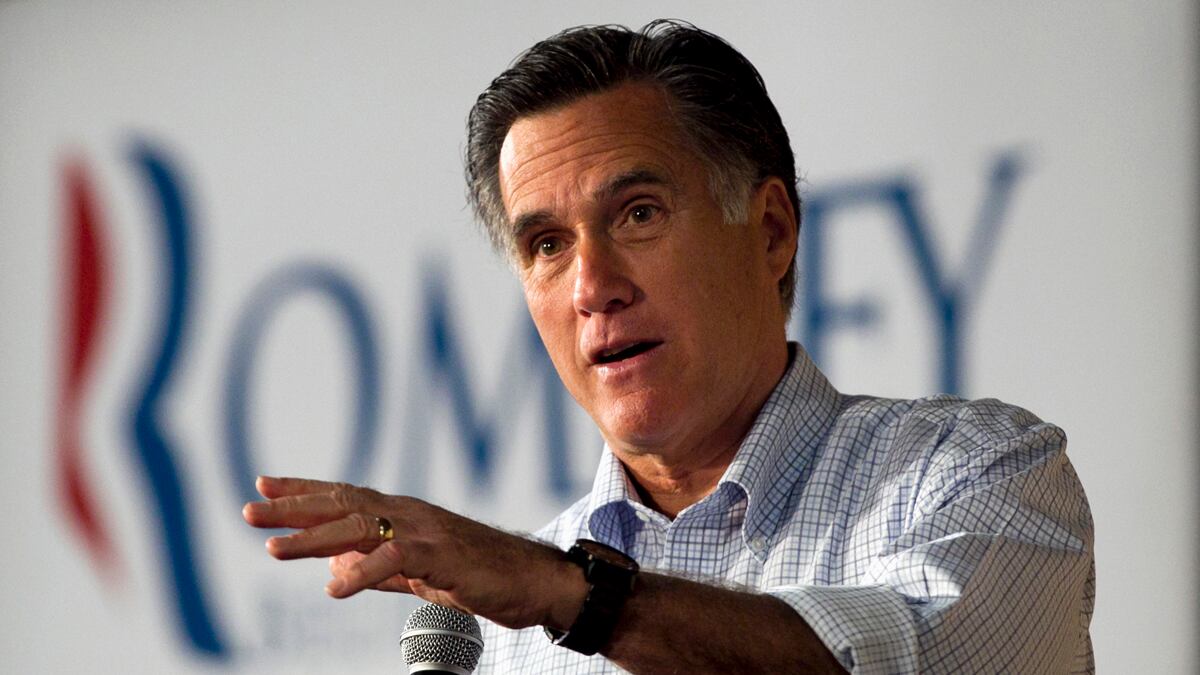Mitt Romney captured the pivotal Wisconsin primary on Tuesday in a three-contest sweep that dimmed the already flickering hopes of Rick Santorum to remain a significant factor in the presidential race.

With much of the media already moving on to a Romney-vs.-Obama fall matchup, Santorum missed the chance to change the narrative by edging his rival in Wisconsin, just as he had fallen short in two other Midwestern battlegrounds, Michigan and Ohio.
And that sense of inevitability is becoming a self-reinforcing prospect. In Wisconsin exit polls, 8 in 10 voters say they believe Romney will capture the GOP nomination, and about two thirds of Santorum’s voters hold the same view. Once you are reduced to the status of a protest candidate, it is hard to win over those who aren’t already true believers.
Both sides headed into Tuesday’s voting knowing that Santorum would lose in Maryland and also in the District of Columbia, where he failed to qualify for the ballot. So Wisconsin was his only hope of avoiding a triple wipeout.
With nearly half the votes counted, Romney was leading Santorum 42 to 38 percent in Wisconsin. With nearly two-thirds of the vote in, Maryland was shaping up as a Romney blowout, 48 to 30 percent.
Santorum, speaking before the Wisconsin outcome was known, explicitly compared himself to Ronald Reagan. Noting that the Gipper won only one primary until May in the 1976 campaign, Santorum said: “He took that race the entire way to the convention and fell short, and in the fall Republicans fell short because we nominated another moderate. Let’s not make the mistake of 1976 again.”
Gerald Ford was hardly considered a moderate in that race, but Santorum finds the story stirring because Reagan prevailed four years later—and beat an incumbent Democratic president. It is fair to say, however, that Santorum has not demonstrated Reaganesque skills in this campaign.
Santorum also took some indirect swipes at Romney, saying only that there shouldn’t be “little differences between our nominee and President Obama.”
Romney, who ignored Santorum in his speech, tried to personalize his critique of Obama. He took a Palinesque slap at Obama’s younger days, saying with considerable overstatement that when Barack was a community organizer and a factory closed, “he saw free enterprise as the villain and government as the solution.” He also tried to paint the president as some sort of poohbah: “It's enough to make you think that years of flying around on Air Force One, surrounded by an adoring staff of True Believers telling you what a great job you are doing, well, that might be enough to make you a little out of touch.”
Romney threaded the needle between economic pessimism and general optimism, saying he had traveled the country “from student union cafeterias to kitchen tables, from factory break rooms to boardrooms, and I’ve heard frustration and anger but rarely hopelessness. Many Americans have given up on this president but they haven’t ever thought about giving up.”
Exit polling in the state carries a warning for Romney as he tries to slog his way to the magic number of 1,144 delegates: nearly half of those surveyed said he is “not conservative enough.”
Santorum’s pattern has not varied in the 2012 race. He has carried states where evangelical voters make up a majority and lost contests where they are a minority—under 40 percent in Wisconsin, according to the exit surveys. As the candidate most closely identified with such social issues as abortion and contraception, he has never managed to broaden that base, which carried him to recent victories in Alabama, Mississippi, and Tennessee.
There was a brief moment where Santorum seemed to be softening his criticism of the former Massachusetts governor. Perhaps he was stung by a backlash after he charged that four more years of President Obama might be preferable to the Etch a Sketch candidate and was preparing to bow to the likely outcome.
But an ad airing in Wisconsin in recent days shows that Santorum is doubling down. It opens with a picture of Obama as the female narrator says: “What if I told you this man’s big-government-mandating health care included $50 abortions and killed thousands of jobs, would you ever vote for him? What if I told you he supported radical environmental job-killing cap and trade and the Wall Street bailouts”—before the image dissolves into a picture of Romney. That commercial prompted the Romney campaign to accuse Santorum of desperation.
The clearest sign that the press corps is looking ahead to the general election is the spate of articles and television segments speculating on who Romney may pick as his running mate (get ready for five months of this, folks). And the Wisconsin coverage has drawn far less coverage than similar showdowns in recent weeks, especially with Newt Gingrich having drastically scaled back his campaign. Many of the questions to Santorum now revolve around some version of “why aren’t you dropping out?”
Romney, naturally, is pushing to wrap up the nomination before the August convention, and has rolled out a slew of endorsements, from Jeb and George H.W. Bush to Marco Rubio, to foster the impression that the contest is over. The president has been obliging in this regard, referring to Romney by name this week as his operation gives every indication of gearing up to run against Romney.
Santorum, for his part, is trying to slow any stampede. “I think in this primary, the longer it goes, the better it is for the party,” he told Fox News. “I think it would be an energizing thing for our party to have a candidate emerge who isn’t the blessed candidate of the Republican establishment.”
But Mittmentum is on the rise. While Santorum has given no indication of quitting, he faces the possibility of a humiliation in his home state on April 24. Polls show he and Romney running roughly even in Pennsylvania. It’s no accident that Santorum gave his speech Tuesday night in the Pennsylvania town of Mars. “You know me—you know how hard I work,” he said.
He won’t get much relief in the other states voting that day: New York, Connecticut, Delaware, and Rhode Island are all considered Romney country.
The calendar turns more favorable toward Santorum in May, with primaries in such states as Texas, Kentucky, Arkansas, and North Carolina. That is, if he makes it that far.






